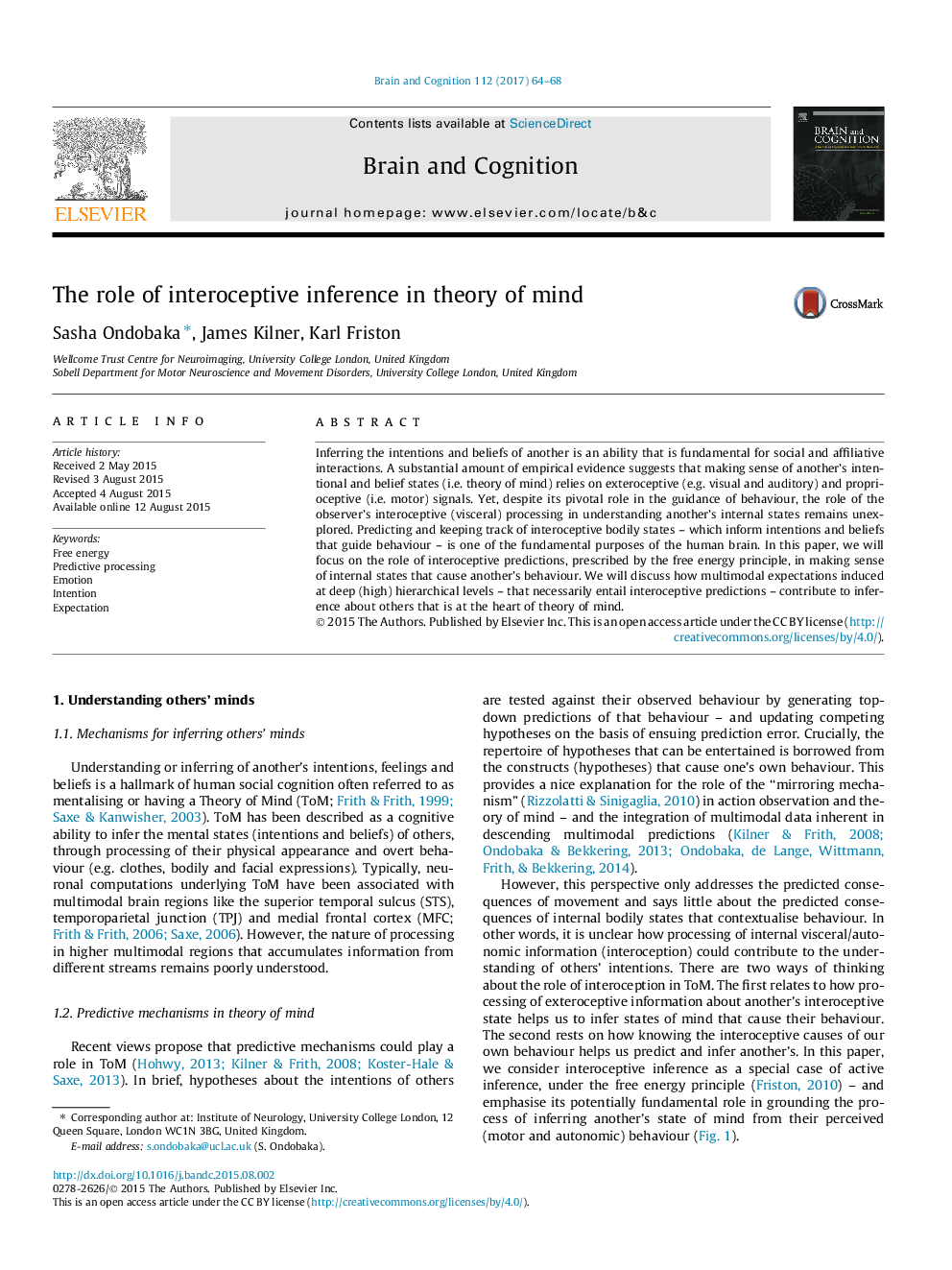| کد مقاله | کد نشریه | سال انتشار | مقاله انگلیسی | نسخه تمام متن |
|---|---|---|---|---|
| 5041100 | 1473959 | 2017 | 5 صفحه PDF | دانلود رایگان |
- Own mental states depend on inferred interoceptive states.
- Understanding another's mental states (ToM) also entails interoceptive predictions.
- Multimodal expectations at deep hierarchical levels contribute to ToM.
Inferring the intentions and beliefs of another is an ability that is fundamental for social and affiliative interactions. A substantial amount of empirical evidence suggests that making sense of another's intentional and belief states (i.e. theory of mind) relies on exteroceptive (e.g. visual and auditory) and proprioceptive (i.e. motor) signals. Yet, despite its pivotal role in the guidance of behaviour, the role of the observer's interoceptive (visceral) processing in understanding another's internal states remains unexplored. Predicting and keeping track of interoceptive bodily states - which inform intentions and beliefs that guide behaviour - is one of the fundamental purposes of the human brain. In this paper, we will focus on the role of interoceptive predictions, prescribed by the free energy principle, in making sense of internal states that cause another's behaviour. We will discuss how multimodal expectations induced at deep (high) hierarchical levels - that necessarily entail interoceptive predictions - contribute to inference about others that is at the heart of theory of mind.
Journal: Brain and Cognition - Volume 112, March 2017, Pages 64-68
